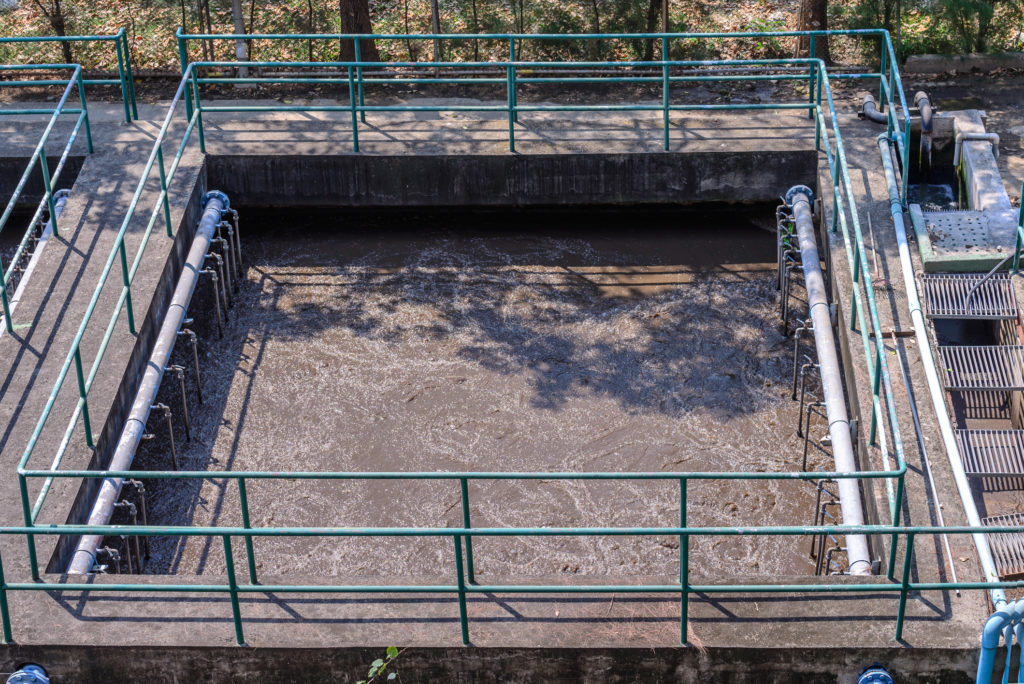Membrane Bioreactor (MBR)
Membrane bioreactors, or MBRs, are advanced biological wastewater treatment technologies that combine conventional aerobic digestion with membrane filtration to produce a high-quality effluent. They have a significantly smaller footprint compared to conventional activated sludge processes and are ideal for processing biodegradable organic matter in wastewater. MBRs primarily target biological oxygen demand (BOD) and total suspended solids (TSS).
MBR system design will vary depending on the nature of the wastewater and the treatment goals, but a typical MBR might consist of aerobic and anaerobic treatment tanks, an aeration system, mixers, a membrane tank, a clean-in-place system, and either a hollow fiber or flat sheet ultrafiltration membrane. Chemical pumps are added to maintain an ideal pH level and nutrient balance, and sludge can be removed periodically by a vacuum truck service or dewatered on-site with a filter press and disposed of as solid waste.
These systems are highly customizable and can be altered to fit your biological wastewater treatment needs. For example, if your facility’s waste is high in nitrogen or phosphorous, adding an anoxic tank or coagulant dosing system, respectively, can help reduce these contaminants.
Typical applications include wastewaters from beverage plants, dairies, bakeries, and more. Small communities or developments without access to municipal sewers may also benefit from the MBR’s small footprint and simplicity.
MBR effluent is comparatively very pure. Typically, both BOD and TSS will be removed to less than 5 mg/L, which makes the technology suitable for reuse in irrigation, cooling tower water, toilet flushing, land application, or as raw water for further purification and reuse.
Advantages:
-
-
- Up to 50% smaller footprint compared to conventional activated sludge processes
- High-quality effluent allows reuse of water
- Helps companies meet strict discharge regulations
- Prepackaged to reduce installation costs
-
Disadvantages:
-
-
- Higher capital cost than conventional activated sludge process
- Not suited for extremely high BOD loads but can be paired with other systems for polishing
-
Our biological solutions help you minimize operational costs while improving your production capacity.


